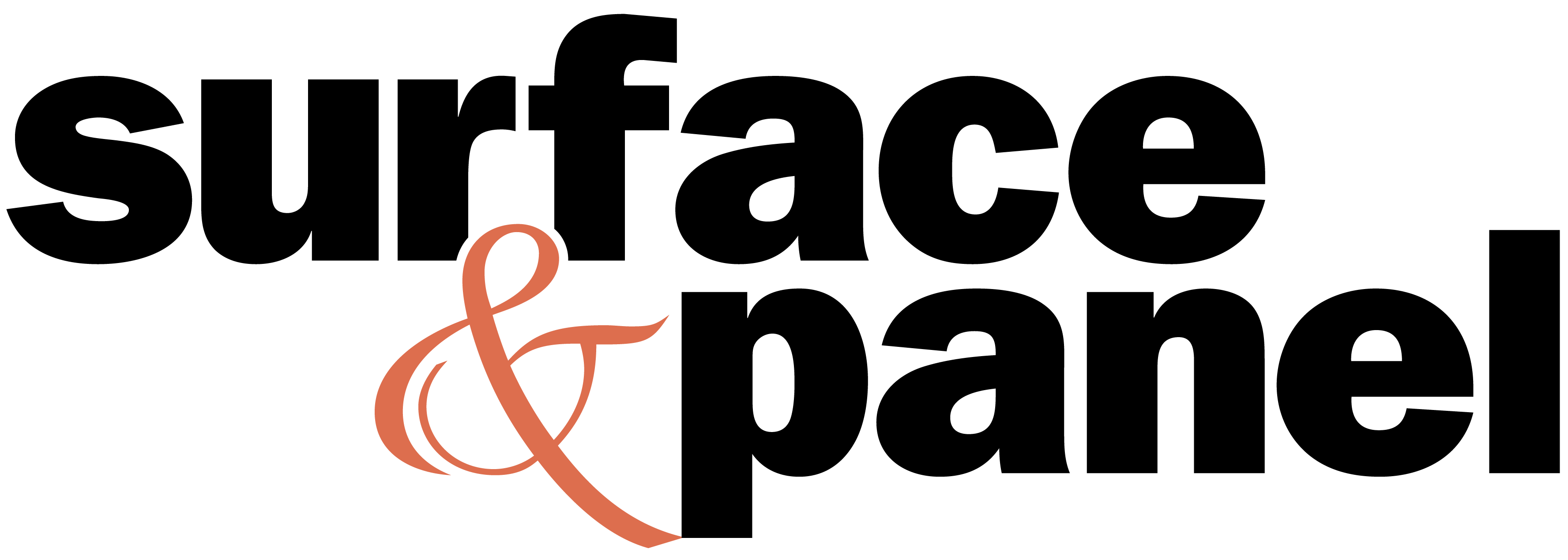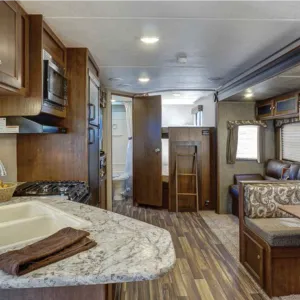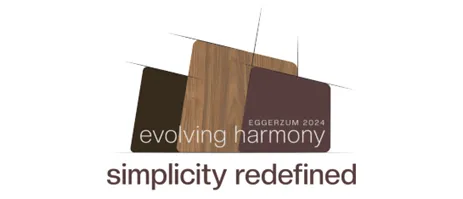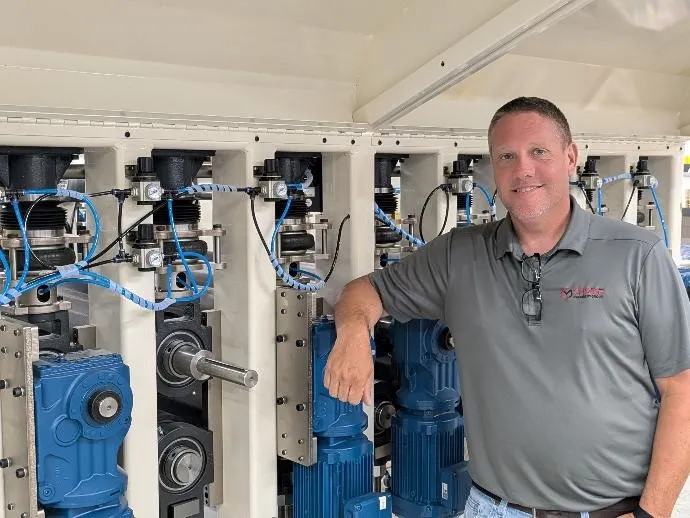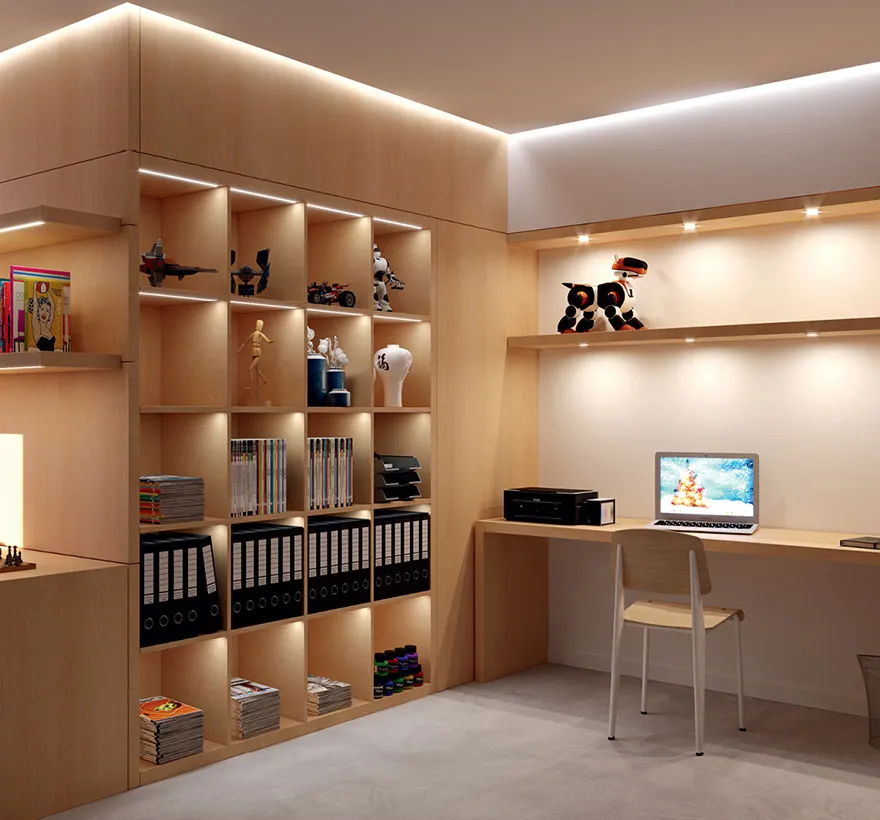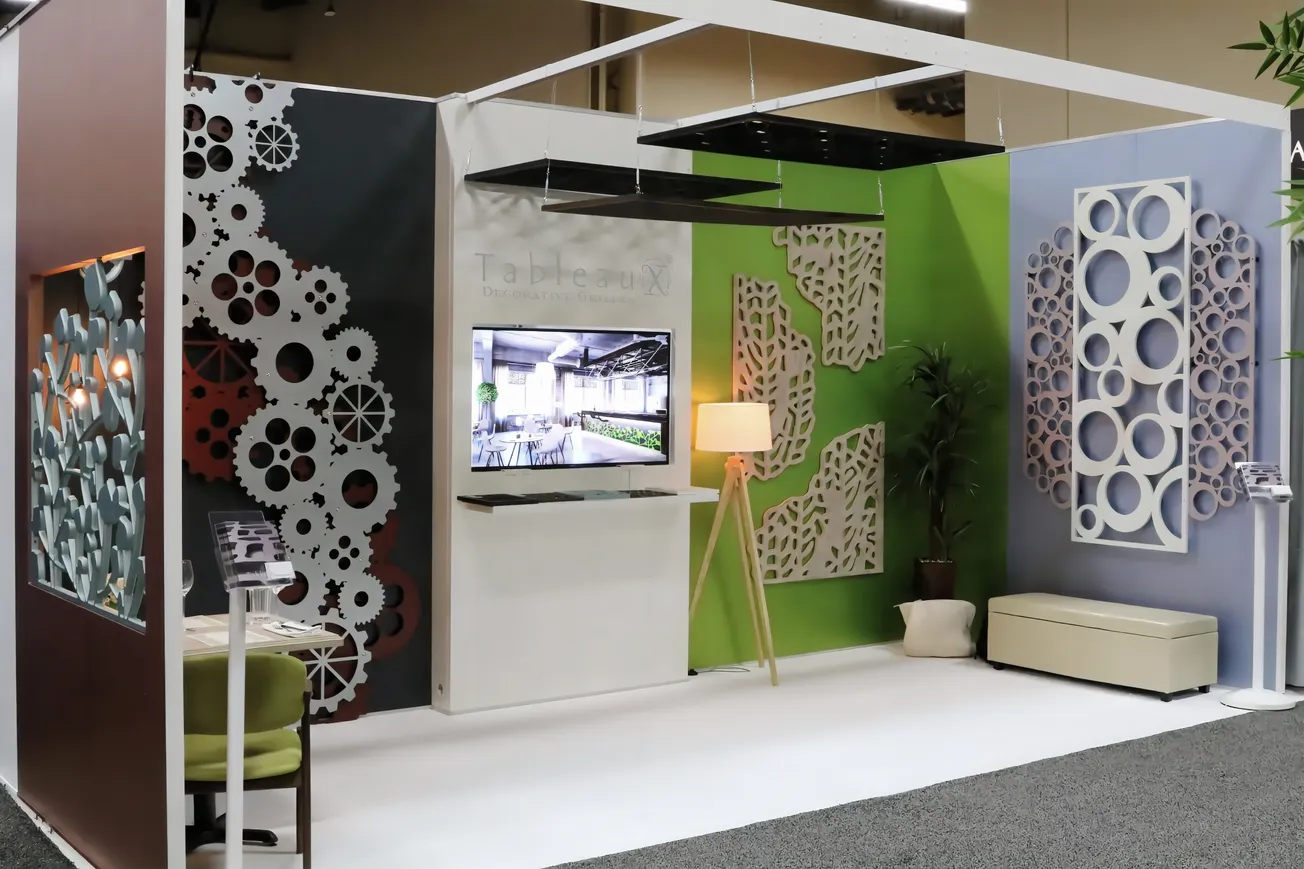Table of Contents
Zooming RV sales take panel industry for a rewarding ride
The timing could hardly be better for the panel processing industry.
Sales of recreational vehicles are setting records just as the smooth, clean, simple lines of European and contemporary styling are making their way into RVs in a big way.
That adds up to more sales for businesses that specialize in composite panels and decorative surfaces, which are essential elements in contemporary design, and the trend isn’t likely to abate any time soon.
“We see things transitioning from a more traditional look to more transitional and toward contemporary,” said Joe Kalil, director of design at Keystone RV in Goshen, Indiana, which sells the gamut of towable vehicles and is one of the top RV manufacturer in North America.
“You’re seeing a lot of simple, clean lines. There’s not anything overly ornamental, for example. There used to be a time when you’d see the higher-end products have a lot of hard-carved wood, and not so much of that is happening any more in the towables.”
As did housing and other big-ticket businesses, the RV industry took a huge hit during the recession that started in 2008. It’s safe to say that RVs have fully recovered—and then some. The industry is on pace to sell a record 446,000 RVs in 2017, up 3.6 percent from last year’s 430,691, which was also a record.
What’s driving sales? Combined with a relatively strong economy and low interest rates, among the major factors is that more young people, especially millennials, are jumping into the market. They are buying RVs for a variety of reasons, ranging from the reasonable cost options to the freedom that RVs afford.



“The average age of the buyer has dropped significantly,” Kalil said. “Twenty years ago, the average age was somewhere around 50. It’s now in the high to mid-30s. Many are families with small children who want to take them out to enjoy nature and camp.”
Those buyers, Kalil said, like to control their own destiny. “When you take an RV to go vacationing, you can go where you want to go, when you want to go. And you can take your living quarters with you. It’s a nice way to go.”
Millennials, however, are often just settling into their careers and have young families to support, so they are cost conscious. They lean toward smaller, fuel-efficient, less-expensive trailers, but they still want style and amenities.
“We tend to go more progressive with interiors for those smaller trailers,” Kalil said.
That plays into the hands of the panel processing industry, as does the intense focus on price point that allows companies such as Keystone to keep their trailers affordable for today’s younger buyers.
One company positioned to serve the growing demand—both from a product and geographic standpoint—is Genesis Products, which is headquartered in Elkhart just eight blocks from Keystone.
Genesis is a lamination and panel processing company with more than 600 employees working at three plants in Elkhart, three in Goshen, with a fourth under construction, and one in Keysville, Virginia. It manufactures laminated components for a variety of products and industries, including RVs, office furniture, kitchen cabinets and store fixtures.
When it comes to RVs, Genesis makes components for nearly every interior use, including walls, cabinet doors, countertops, tables, fascia, trim, specialty moulding and steps. Genesis sources its raw panels worldwide, primarily through direct relationships with mills. Thin panels for walls and ceiling are made from Meranti, which comes from Southeast Asia. Other materials, such as lightweight thick panel plywood and MDF, are sourced both internationally and domestically and are used to produce the components and decorative surfaces found in RVs.
When it comes to surface materials, Genesis also works with a wide variety of companies, and it’s committed to being ahead of the market on trends.
“In the past, customers would say, ‘I want this,’ and we’d figure it out how to achieve their desired look,” said Trent Evans, division vice president. “In the last few years, we’ve put a lot of resources and time into ensuring that our product managers, designers and sales people are out in front of our customers showcasing our own designs. We are now in the position of proactively bringing innovative products to our customers.”
 Genesis’ work in the kitchen industry helps it see trends and bring them to the RV industry because kitchen designs are generally several years ahead of those in RVs, he said.
Genesis’ work in the kitchen industry helps it see trends and bring them to the RV industry because kitchen designs are generally several years ahead of those in RVs, he said.
While Genesis still must keep baby boomers and their more traditional leanings in mind, the company’s designs are geared more toward millennials and Gen-Xers, who favor “clean, simple lines, full access cabinets and a more contemporary aesthetic,” Evans said.
One company with a longstanding relationship with the RV industry is Omnova Solutions, which  supplies a wide range of decorative laminates for commercial and residential uses. For RVs, Omnova provides paper laminates, as well as 2DL, 3DL and acrylic films, and its harmony Program facilitates design and color matching across products.
supplies a wide range of decorative laminates for commercial and residential uses. For RVs, Omnova provides paper laminates, as well as 2DL, 3DL and acrylic films, and its harmony Program facilitates design and color matching across products.
“We offer the majority of decorative surfaces within the RV industry,” said Dustin Smith, Omnova’s sales director for laminates and performance films. “RVs are one of our largest market segments and one of our fastest growing. Over the past four years, we’ve seen double-digit growth in RVs.”
One of Omnova’s top surfaces in the segment is its surf (x) 3DL, which has a specialty coating that provides more durability than standard thermofoils. Omnova successfully pushed surf (x) as a less expensive alternative to HPL, and it’s now replacing solid surface in many traditional applications, as well.
 “Before, RV manufacturers often felt their countertops and surfaces had to be HPL or solid surface,” Evans said. “Omnova’s surf (x) gave an option of a beautifully finished product. It looked like solid surface but at a better price point. That’s something that we’ve been very successful with, and customers have responded very positively.”
“Before, RV manufacturers often felt their countertops and surfaces had to be HPL or solid surface,” Evans said. “Omnova’s surf (x) gave an option of a beautifully finished product. It looked like solid surface but at a better price point. That’s something that we’ve been very successful with, and customers have responded very positively.”
Besides being less costly, 3DL is lighter than solid surface, and that’s critical for RVs, Smith said, adding that the wrapped product also eliminates edgebanding and edge lines. Surf (x) is being used for tabletops, countertops, dresser tops and nightstands, and it’s gaining popularity for cabinet doors.
 Omnova takes pride in launching new designs three times a year, and it works closely with companies such as Keystone and Genesis to get their input and feedback and even has a designer based in Elkhart to facilitate that cooperation, Smith said.
Omnova takes pride in launching new designs three times a year, and it works closely with companies such as Keystone and Genesis to get their input and feedback and even has a designer based in Elkhart to facilitate that cooperation, Smith said.
Omnova’s biggest market is kitchen and bath, which has been trending toward European styles for several years, and it works to carry trends such as high gloss and straight grains into the RV industry, Smith said. European trends, however, also include matte and other duller finishes, along with solid colors, and those tend to scratch easily, reinforcing the need for Omnova’s specialty coatings.
Another key partner for Genesis is Interprint, one of the world’s top producers of décor paper for furniture, flooring and interior finishing.
“For us, one of our strategic pillars is product leadership,” said Jon Wenger, Genesis’ president and CEO. “We are always looking for innovative products that we can bring into the RV industry. Interprint is an example of an innovative company that helps provide new and different surfaces, and that partnership involves an exclusive offering from Interprint through Genesis to the RV industry.”

Genesis is excited about introducing Interprint’s Premeer, an oriented polypropylene decorative overlay, to the RV industry. Premeer combines board protection with high fidelity and is especially known for its moisture resistance.
industry. Premeer combines board protection with high fidelity and is especially known for its moisture resistance.
“That product fills a niche that’s not currently being offered,” said Alysha Liljeqvist, director of marketing and communications at Genesis. “Other products are similar, but we thought Interprint’s formulation and how they processed and created their surface was unique. They are also a domestic manufacturer, and that makes a big difference in terms of development and lead time.”
Premeer is not being used in RVs currently, but Genesis is confident that it will be introduced in the 2019 model year, for which manufacturers will begin planning in January. “We believe it will have applications in high use areas because of its durability and water resistance,” Liljeqvist said.
Schattdecor is another décor printer that has been successful in the commercial market, and it’s now bringing its inventive designs to the burgeoning RV industry.
“With Schattdecor, you had beautiful European styles that the RV industry had not seen before. It shifted the industry’s attention to looking at Europe,” Liljeqvist said. “They really pushed the more traditional companies to say, ‘Oh, wait a second. The market is actually interested in something other than brown, brown … and brown.’”
 Genesis’ strategic partnership with German laminating company Vöhringer also has paid dividends in helping the American company transition toward European styling. With Vöhringer’s help, for example, Genesis began manufacturing curved cabinet doors, which are popular in RVs overseas.
Genesis’ strategic partnership with German laminating company Vöhringer also has paid dividends in helping the American company transition toward European styling. With Vöhringer’s help, for example, Genesis began manufacturing curved cabinet doors, which are popular in RVs overseas.
“The European market has embraced trends like high gloss and white decorative surfaces in a caravan,” Liljeqvist said. “For years they have gravitated toward engineered products, which are more lightweight, more durable and can easily be moldable to a specific application.”
“With new buyers in the US—millennials, Gen-X—the aesthetic is going to change, and manufacturers will need engineered products to pull off the aesthetic that is now common in European RVs.”
While Genesis supplies components to the entire RV industry, one of its best customers is just down the road, and Keystone RVs is having “a great year,” Kalil said. Keystone is a special company, he said, at least partly because it has people with considerable experience from top management on down.
“We know what it takes to build a good quality product, and we know what it takes to build an aesthetically pleasing product,” Kalil said, adding that Keystone’s goal is “to delight our customers every day.”
 As for RV interior design, shaker and prairie styles still remain popular even as European trends gain more of a foothold, Kalil said.
As for RV interior design, shaker and prairie styles still remain popular even as European trends gain more of a foothold, Kalil said.
“You’ll see some segments of our market going to a higher gloss finish on their cabinetry. You will see some sleek, clean product lines. You’ll see some transitional. For some products, we are using five-piece wrapped doors,” he said. “The trend is definitely away from solid wood and toward more engineered. Some of it is done to save weight. Some of it is done to get the look you want.”
Engineered products are gaining favor because they are less expensive than solid wood, more consistent in terms of grain matching between elements, more machinable and more durable, Kalil said.
Keystone and Genesis work closely, and representatives from the two companies often travel together to visit suppliers and see their new product development ideas. “It’s a great relationship, and they are a very good supplier to us,” Kalil said of Genesis.
It helps that the RV industry is enjoying such robust sales, and Genesis’ Wenger remains optimistic for the future.
“I think everyone in the industry is optimistic that we’ll continue to see strong growth. The millennial trend is very exciting and opens new opportunities for design, material and product.
“We are in a very globalized economy, which gives us access to resources but can also subject our industry to outside pressures. We will continue to ride the wave of success the RV industry is experiencing, and we hope that it continues.”


